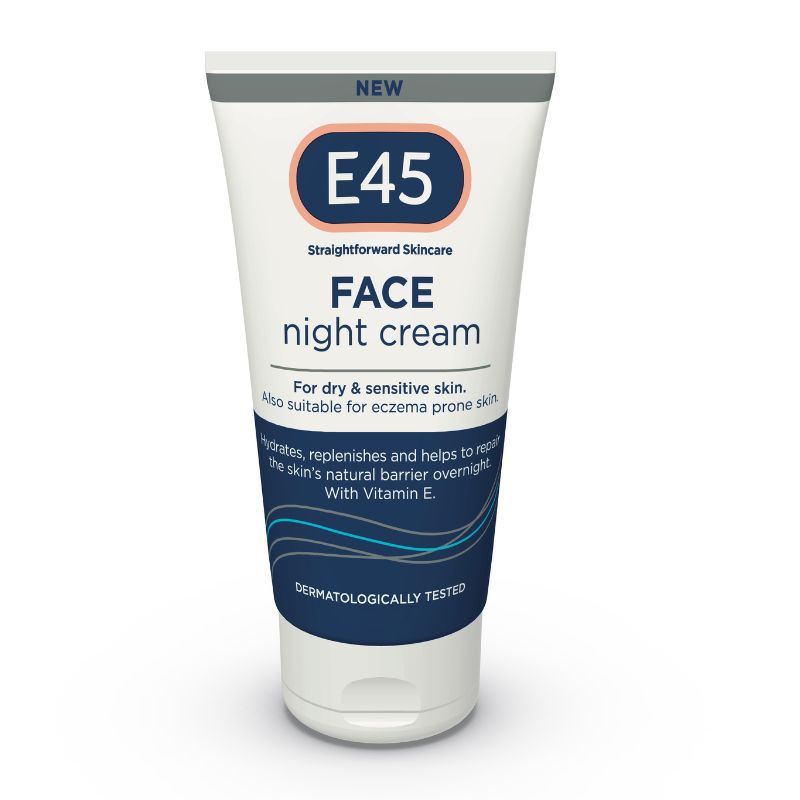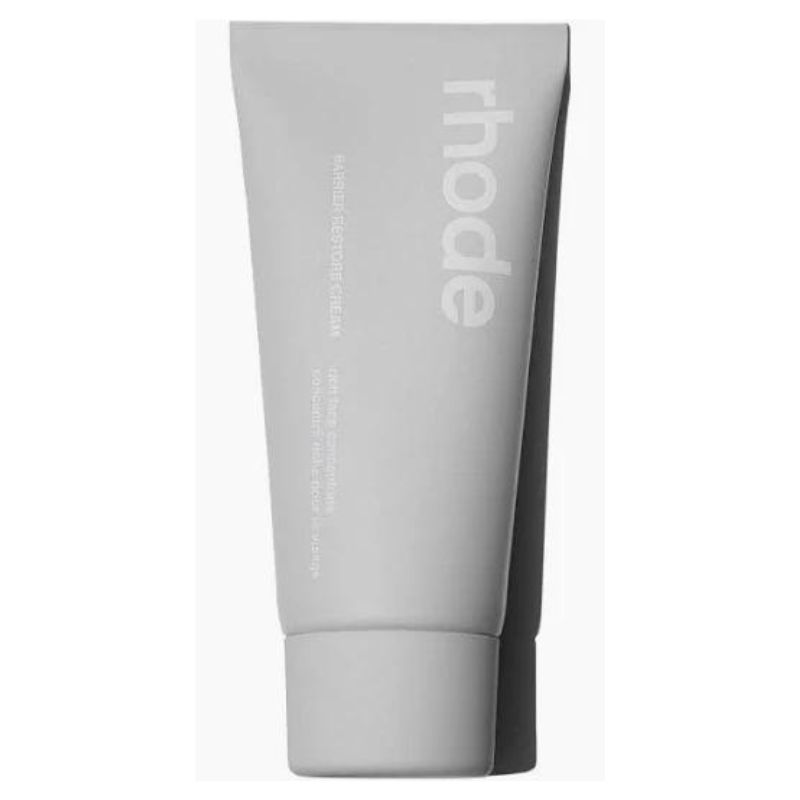6 signs you have winter skin – and the best way to tackle each one
Noticing the signs of winter skin? Colder weather can wreak havoc, so we've got the solutions
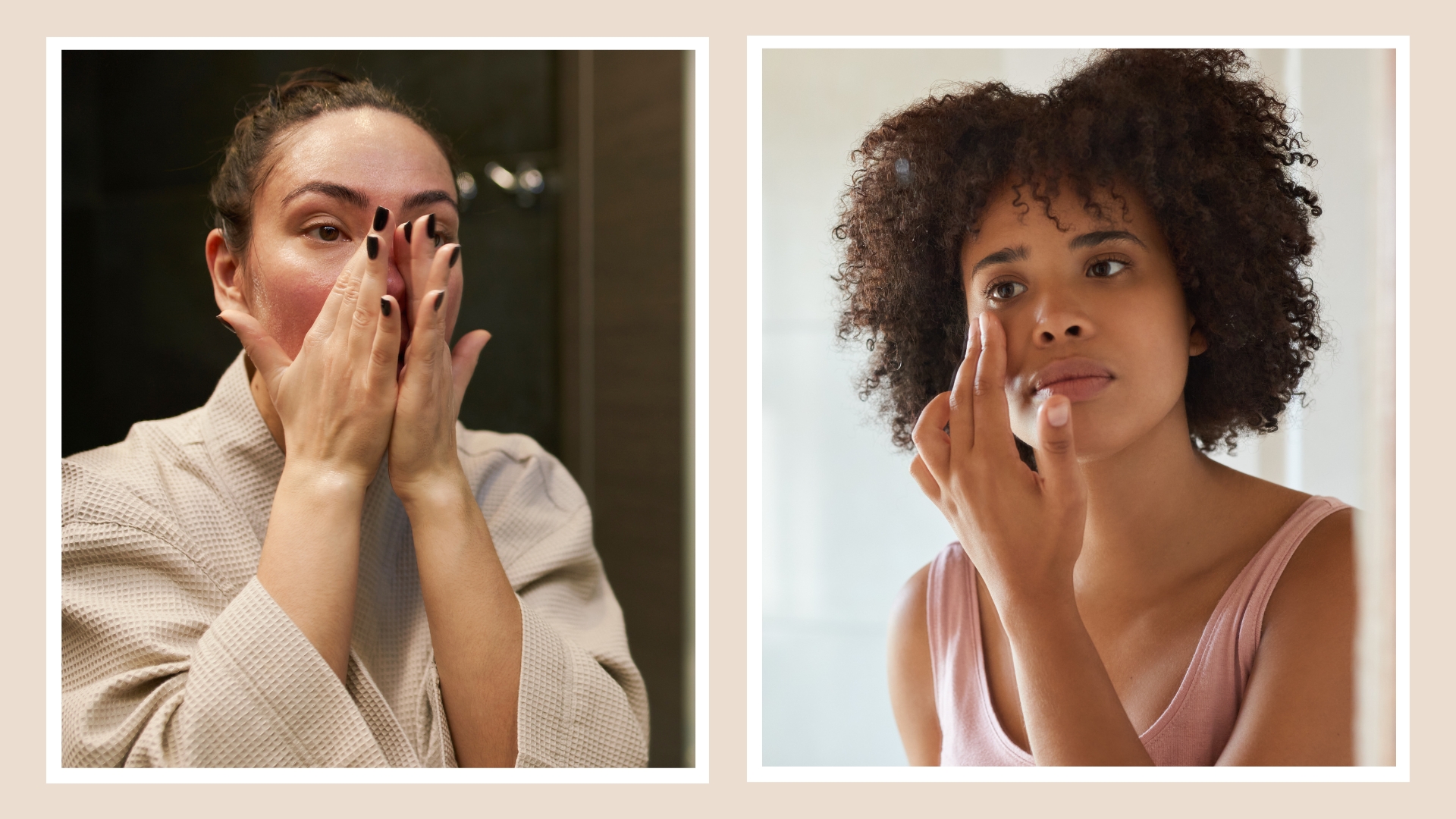

Complexion been playing up ever since the weather turned? You’re probably experiencing the effects of winter skin.
Our skin doesn’t stay the same all year long, or even week to week or day to day. It’s constantly changing based on factors like our hormones, stress and the kind of skincare we’re using, from our best moisturisers to our best cleansers. But seasonal shifts, like the colder temperatures, harsh winds and shorter daylight hours that winter brings, can also greatly impact how our skin looks and feels. And it’s not just these factors that our complexions have to contend with, but also the things we do as a result of them – things like cranking up the central heating, cladding every inch of skin in as many layers as possible and spending more time than usual languishing under a joyfully scorching shower.
So to help you keep your skin as happy and healthy as possible until spring, we’ve narrowed down the six key signs of winter skin and asked the experts for their top tips on how to tackle them.
What is winter skin?
“Several factors contribute to the way our skin behaves in colder weather, leading to the sensation of dryness and tightness,” explains Dr Derrick Phillips, a Consultant Dermatologist working with skincare brand CeraVe. You may also notice that your skin looks more lacklustre than usual, fine lines are becoming more prominent and existing skin conditions like psoriasis, rosacea and eczema are flaring up. Unfortunately, those with dry or sensitive skin tend to be first in line for the side effects of winter. “Their weakened skin barrier makes them more susceptible to the harsh, dry conditions present during winter, resulting in dry, irritated and inflamed skin,” continues Dr Phillips.
But before those with oily complexions breathe too deep a sigh of relief from having left summer's humidity-induced excess oil and clogged pores from extra layers of facial sunscreen behind for the year, it’s important to note that all skin types will be impacted by winter skin in some way – just to varying degrees.

Dr Derrick Phillips is a Consultant Dermatologist based in London and working with ceramide-focused skincare brand CeraVe. He specialises in all areas of skin health, from acne to rosacea.
6 signs you have winter skin
We've spoken to the experts to identify what the main signs of winter skin are and what the best way is to tackle each one...
1. Your skin feels dry and rough
If you surveyed the majority of people about how their skin feels during the winter, we bet that dry and rough would be two adjectives that come up time and time again.
Sign up to our free daily email for the latest royal and entertainment news, interesting opinion, expert advice on styling and beauty trends, and no-nonsense guides to the health and wellness questions you want answered.
Dry skin is a skin type, just like oily, combination and normal, and is a term used to describe skin that’s naturally lacking in oil. Without sufficient oil (also known as sebum) little gaps can form in the skin barrier which makes it harder for the skin to retain moisture – a bit like trying to keep water in a sieve. Although it will be worse for those with already dry skin, all skin types can experience dryness (which leads to rough texture) to an extent during the winter, as the skin barrier becomes compromised and less able to hold onto moisture.
“The key to dealing with dry skin is using gentle hydrating cleansers and avoiding really hot showers,” advises Dr Pyal Patel, a GP and expert advisor for E45. “Apply rich and soothing moisturisers when the skin is still damp to lock in moisture. Also, consider swapping to products that are specifically formulated for dry and sensitive skin.” Our round-up of the best moisturisers for sensitive skin has plenty to choose from.

Dr Pyal Patel is a GP with a special interest in dermatology and all things skin-related. She is a fountain of knowledge when it comes to product recommendations as well as practical advice, and currently working as an expert advisor for E45.
2. Your skin looks dull
Does your skin feel comfortable but just look a bit ‘meh’? Sounds like you’ve got a case of winter-induced skin dullness. “The cold weather can reduce blood circulation in the skin, leading to a dull complexion,” explains Dr Patel.
Facial massage is a quick and effective fix in this instance, as the process helps to bring blood and oxygen closer to the surface of the skin, which in turn increases brightness. Spending just five minutes giving yourself a mini massage, either with your hands or with the help of one of the best facial rollers or best gua sha tools, when you apply your morning skincare can make a difference to the luminosity levels of your skin, as well as allow you to banish any puffiness you’ve accumulated overnight.
Alternatively, it could be the clocks changing that’s leaving your skin looking drab. “A lack of sunlight can lower our vitamin D levels, affecting our overall skin health,” adds Dr Patell. Taking a daily vitamin D supplement and trying to get out and about on those rare occasions when the sun is shining, will boost both your mood and your skin.
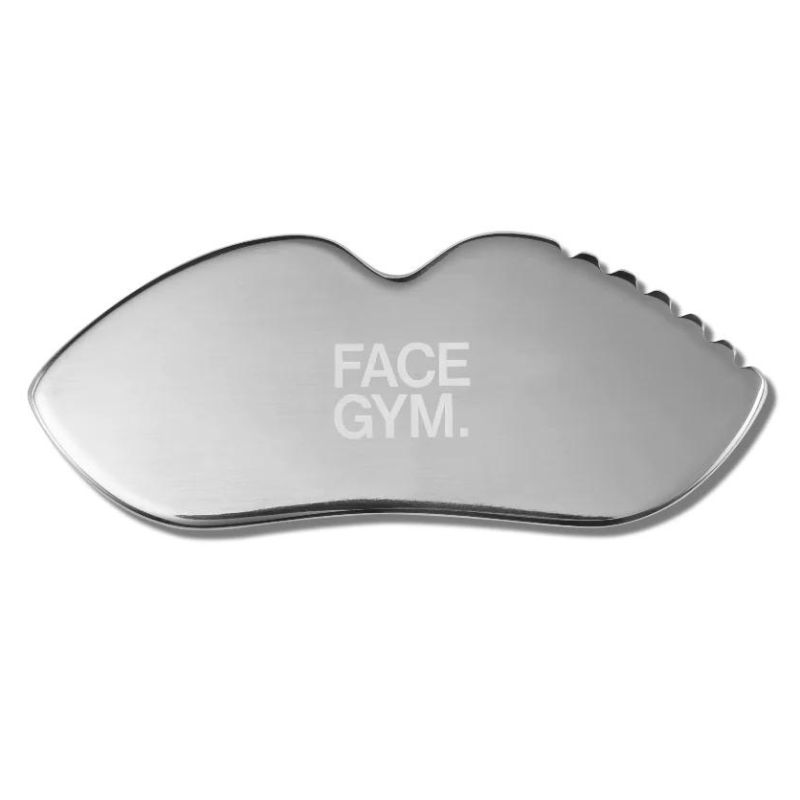
RRP: £50
A very helpful tool for at-home facial massage, this has six different edges to help you lift, contour, reduce tension and more. Plus, the metal makes for a cooling treat on puffy morning skin.
3. Your skin conditions are flaring up
As we’ve already touched upon, winter can “result in an exacerbation of skin conditions like eczema or rosacea,” says Dr Patel. “I often see redness and a worsening of existing dermatological conditions around this time of year.”
It’s frustrating, as anyone who experiences eczema, psoriasis or rosacea will be well aware that ensuring they stay under control requires a lot of work and TLC. Keeping dramatic temperature changes to a minimum (so not going from cold to a very hot shower), applying moisturiser to protect the skin when outside and investing in a humidifier to counteract the very dry air outside can all help.
If your symptoms persist, and it’s becoming especially uncomfortable, make a visit to your GP. Remember too that one of the key culprits of rosacea flare-ups isn’t spicy food and alcohol, but sun exposure. And, whilst we might not necessarily associate winter with glorious sunshine, those bright, frosty mornings can have a negative impact – especially with extra light reflecting off of snow. Committing to applying one of the best sunscreens for sensitive skin all year round will help to lessen the impact.
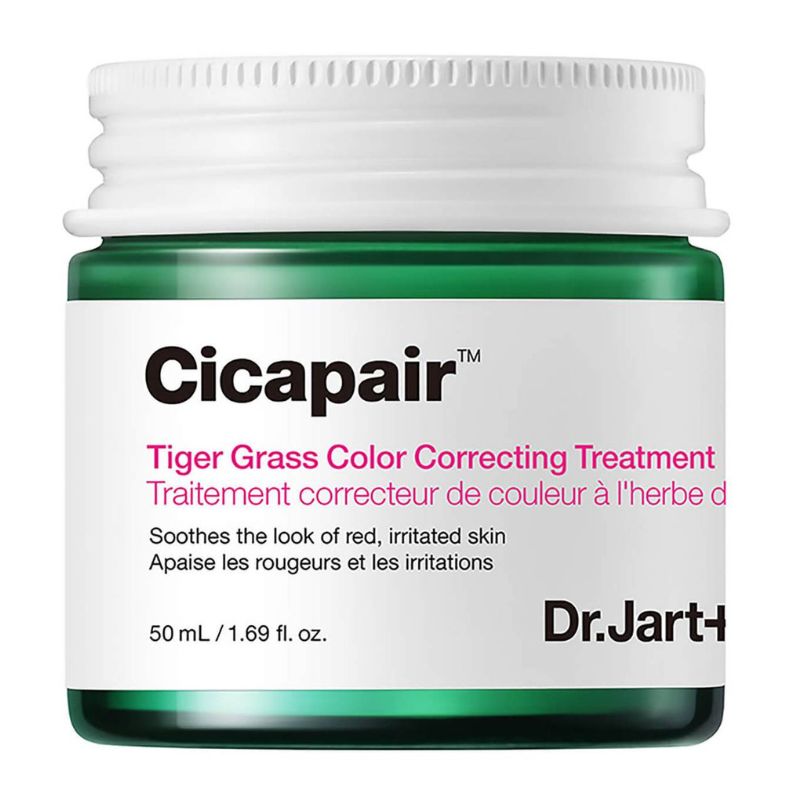
RRP: £37
A brilliant product for anyone struggling with rosacea, this pot of goodness from Dr. Jart+ acts as a barrier to shield skin as well as a colour corrector to neutralise redness.
4. Your skin feels tight
Skin that feels tight is a textbook sign of dehydration, which is when our complexion is lacking in water – as opposed to skin dryness, when it is lacking in oil. It might be that your skin feels tight all of the time, or just noticeably so after cleansing and before you put on your moisturiser.
Dehydration during the winter tends to be caused by a combination of factors. Firstly, most of us drink less water, as we’re not naturally as hot or thirsty as we are during the summer months. Secondly, cold weather and low humidity levels mean there’s less moisture in the atmosphere for our skin to absorb and hold on to. It’s the polar opposite of a sticky summer’s day when humidity levels can be so high that skin feels damp to the touch.
“I notice that people often complain of skin tightness in winter due to all the moisture loss,” says Dr Patel. Her advice is to “drink plenty of fluids, so you’re hydrating from the inside, and use products like hyaluronic acid serums which help in drawing moisture into the skin. Top this with a moisturiser that contains a humectant like glycerin to help lock in that moisture further.”
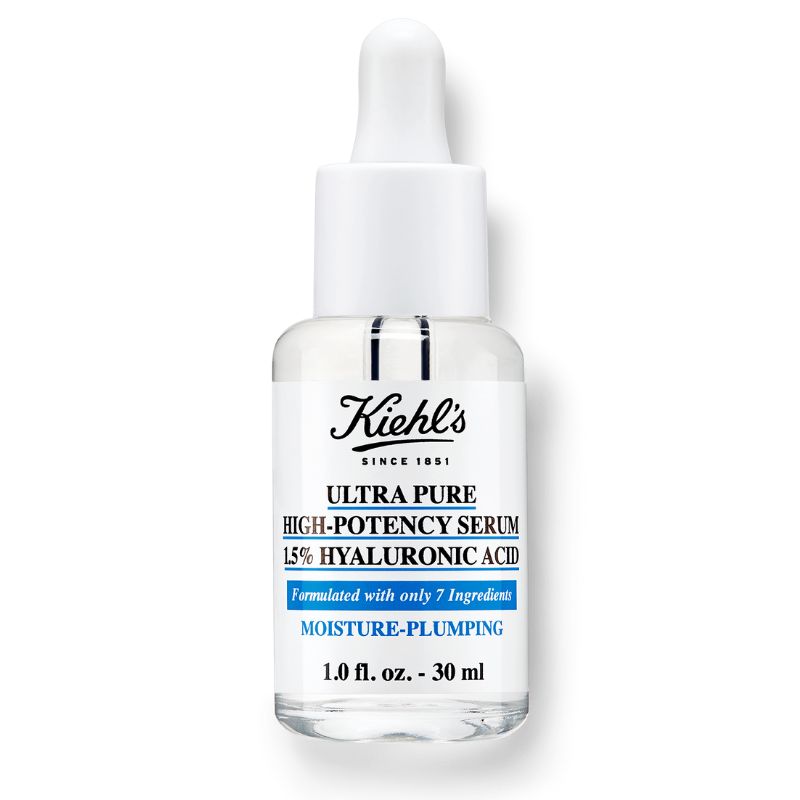
RRP: £29
A simple serum that contains just seven ingredients, the star of the show is hyaluronic acid, which absorbs fast to hydrate and plump the skin.
5. Your skin is ashy or flaking
Dryness and irritation present differently on different skin tones. If you have a deeper complexion, you may notice that your skin takes on an ashy hue when it’s dry, which is due to a contrast between the drier skin cells and the rest of your skin.
Ashiness tends to be most prominent in areas where we have fewer sebaceous glands to keep our skin soft and supple. “During the winter months, you may notice dry, flaky patches of skin between the fingers and on the knees and elbows,” advises Dr Phillips. It can occur on the face too.
The best way to prevent this from happening is to make sure you’re moisturising day and night, and paying special attention to any areas that will be exposed when you’re outside. A barrier cream is perfect for this purpose. If you’re finding that wearing tights leads to ashy shins, try applying a generous layer of one of the best body creams for dry skin or one of the best body oils five minutes before putting them on to counteract this.
6. Your fine lines are more prominent
As well as feelings of tightness, dehydration can also cause fine lines to become more noticeable on your skin. This is because your complexion doesn’t have enough water to keep itself plump and juicy – imagine the wrinkly surface of a raisin versus the lovely smooth, bouncy surface of a grape.
Again, the best way to tackle this is to make sure you’re getting enough water on the inside, so drinking plenty of fluids, not having too much caffeine which can dehydrate you and eating plenty of water-dense foods like fruit and veg.
On the outside, use a hydrating serum to quench thirsty skin and a hardworking moisturiser to lock all that newly acquired goodness in.
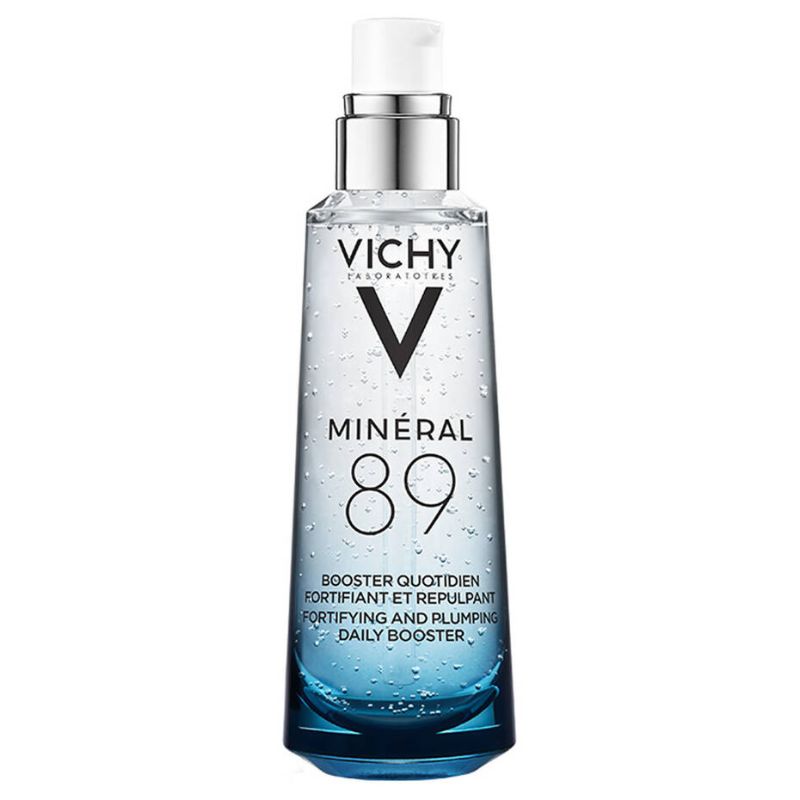
RRP: £28
The hydrating serum to trump all hydrating serums, dehydrated skin drinks this up like we greedily glug a glass of water after a long run.
Jess Beech is an experienced fashion and beauty editor, with more than eight years experience in the publishing industry. She has written for woman&home, GoodtoKnow, Now, Woman, Woman’s Weekly, Woman’s Own and Chat, and is a former Deputy Fashion & Beauty Editor at Future PLC. A beauty obsessive, Jess has tried everything from cryotherapy to chemical peels (minus the Samantha in Sex and The City-worthy redness) and interviewed experts including Jo Malone and Trinny Woodall.
